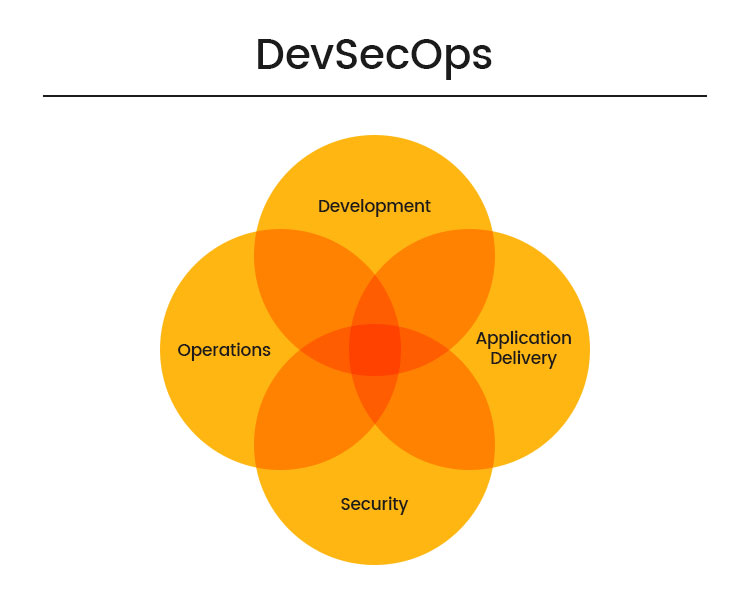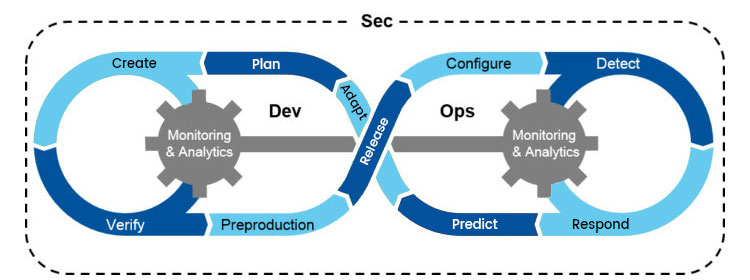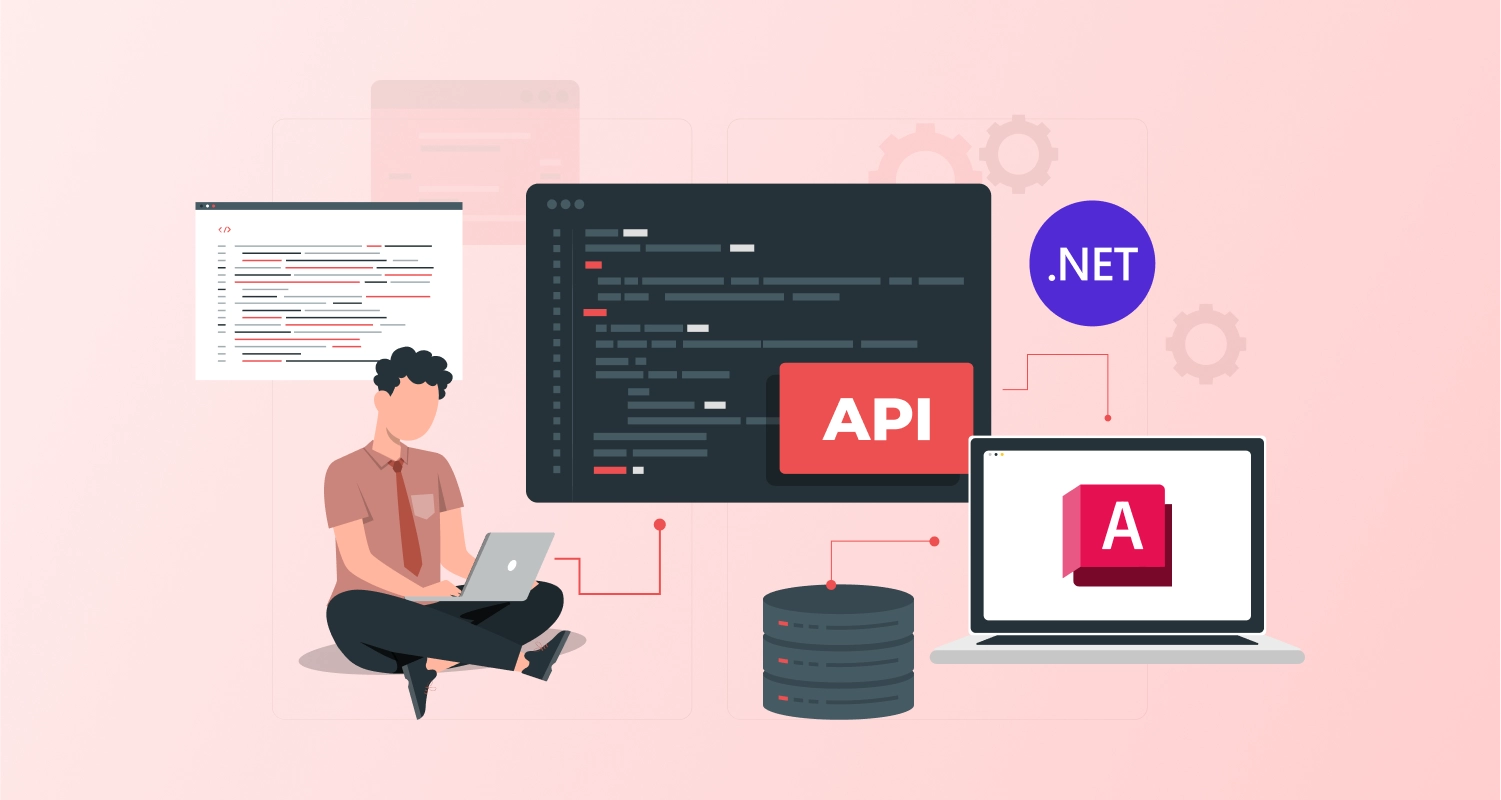The DevOps has come as a major transformational for the IT infrastructure by bringing both the developers and operations under one single teamwork. Ever since then, the IT world continued to embrace this development approach with gusto and enthusiasm. No wonder, DevOps for business has become the single most important force in the evolution of software development. DevOps has been particularly beneficial for reels frequent app updates. This approach also helped stabilizing the development process to a great extent.
But while DevOps as a development approach remained uncontested, the security aspects of the app development process largely remained under the shadow. There was a perception that along with the operations, app security should equally be a part of the development process. With the demand for integrating security with the product life cycle, the DevSecOps approach has emerged. This approach has already proven to play an instrumental role in reducing the security vulnerabilities of the apps.
DevSecOps: A Robust Approach to Integrate Security with DevOps

While integrating the security with the DevOps approach has always been of high demand, this requires a completely different range of processes and tools. DevOps is already known to boast of an agile development methodology. Now when the inputs of the security experts I’ll be brought in a collaborative environment, the project will have an array of effective security safeguards. In spite of disturbing the agile development process of the DevOps approach, the additional security inputs only enhance the safeguards and reliability of the project. So, in a way, DevSecOps will only extend the benefits of a DevOps approach further with security inputs.
Though the companies embracing DevSecOps development methodology are only a few in numbers, in the time to come many companies working with DevOps approach can actually embrace this new methodology for giving their projects more security safeguards and protective cover. To understand how DevSecOps can really benefit development projects across the niches, the developer teams and the strategists of any software development company need to understand the role of security safeguards for their projects.
Effective Practices for DevSecOps
Since DevSecOps as a methodology is gaining traction and popularity, it’s very important to know the most effective practices for DevSecOps. The prime objective of this approach is to make security a key and central element for any development project. To ensure this objective is properly maintained and fulfilled, before you hire dedicated developer for your project, make sure the developers know about the following best practices.
Adapting Automation
We all know that the DevOps methodology needs complete process automation. When the security elements are added to this approach, they also require full automation. We expect over time a lot if security automation tons emerge to fulfill this automation needs.
Maintaining Container Security
As containers in any development project are considered to carry a lot of security risks and vulnerabilities, the DevSecOps methodology must provide a robust and reliable security solution to deal with these security risks corresponding to containers.
Security for APIs and Microservices
As DevSecOps as a methodology mainly emerged to streamline the security along with development and operations processes, it requires a very consistent and seamless process to address all the security threats and vulnerabilities corresponding to serverless solutions, APIs and microservices that are part and parcel of any software development project.
Checking Risk Factors From Open Source Software
Open-source software solutions are known to come with a lot of security risks and vulnerabilities. But a development project often and frequently needs to work with such open-source software products and solutions. To mitigate such risks, any project should run automated security evaluation of these open source solutions.
Secure Coding Practice
Many software development projects primarily face security risks and threats emanating from bad coding practices. As and when the code of a program doesn’t follow the security recommendations and safeguards as per industry standards and protocols they are exposed to an array of security risks. This is why while embracing DevSecOps approach the projects must ensure a secure coding practice.
Choose Security Tools Wisely
As boosting efficiency and output in terms of performance and security is the motto of the DevSecOps approach, you have to be extremely selective about security tools. You always need to choose the most efficient security tools that apart from providing glitch-free security safeguards just fit well into any project.
Biggest Advantages of DevSecOps Methodology
As of now, the role and overall rationale behind the DevSecOps approach have been clear to you. Now, let us point out the most important advantages this development methodology provides for any project across the spectrum.
Holistic and Consistent Security
Instead of considering security as a standout and separate approach to the development process, this methodology allows integrating the security well within the project lifecycle from the very start. This ensures a consistent, throughout and holistic security approach for any project.
Compliance to Industry Regulations
For data storage and access to data, there is already a whole array of industry regulations in place that any development project needs to adhere to. By integrating the security, these security and privacy complacency UI delinks can now be maintained more accurately throughout a project.
Proactive Security Cover
DevSecOps employs the most efficient and robust security tools, solutions and practices to keep the entire system and the project stay alert and responsive to any emerging security threats. Thanks to this always-alert and proactive security approach DevSecOps projects are less vulnerable to threats.
More Efficient Encryption and Authorization
While the latest authorisation techniques and encryption methods are great to provide security cover from unsolicited access and attempts of data tampering and other threats, by integrating these techniques and methods in the project lifecycle, the app security can be more agile, proactive and robust.
Scalable Security Solution
Thanks to DevSecOps approach the security requirements with the with of the traffic and in-app activities are not needed to be frequently taken care of separately. With an integrated security solution within the project, the security remains scalable to accommodate new tools and methods to tackle emerging security risks and threats.
Conclusion
DevSecOps by extending the benefits of the DevOps approach with new integrated security solutions is likely to become the most popular methodology for most enterprise projects. At least a project facing a lot of security requirements will be benefited from this approach.








